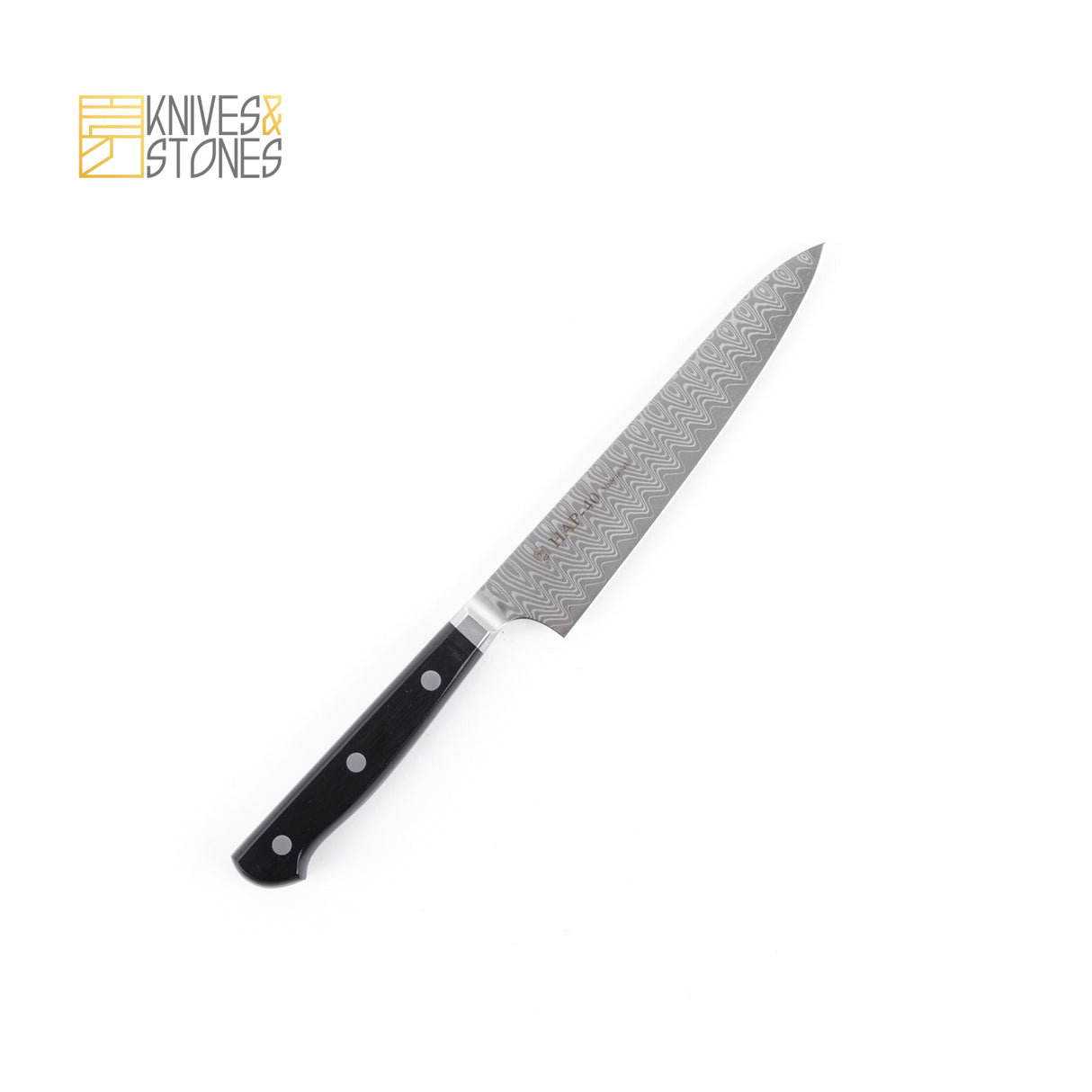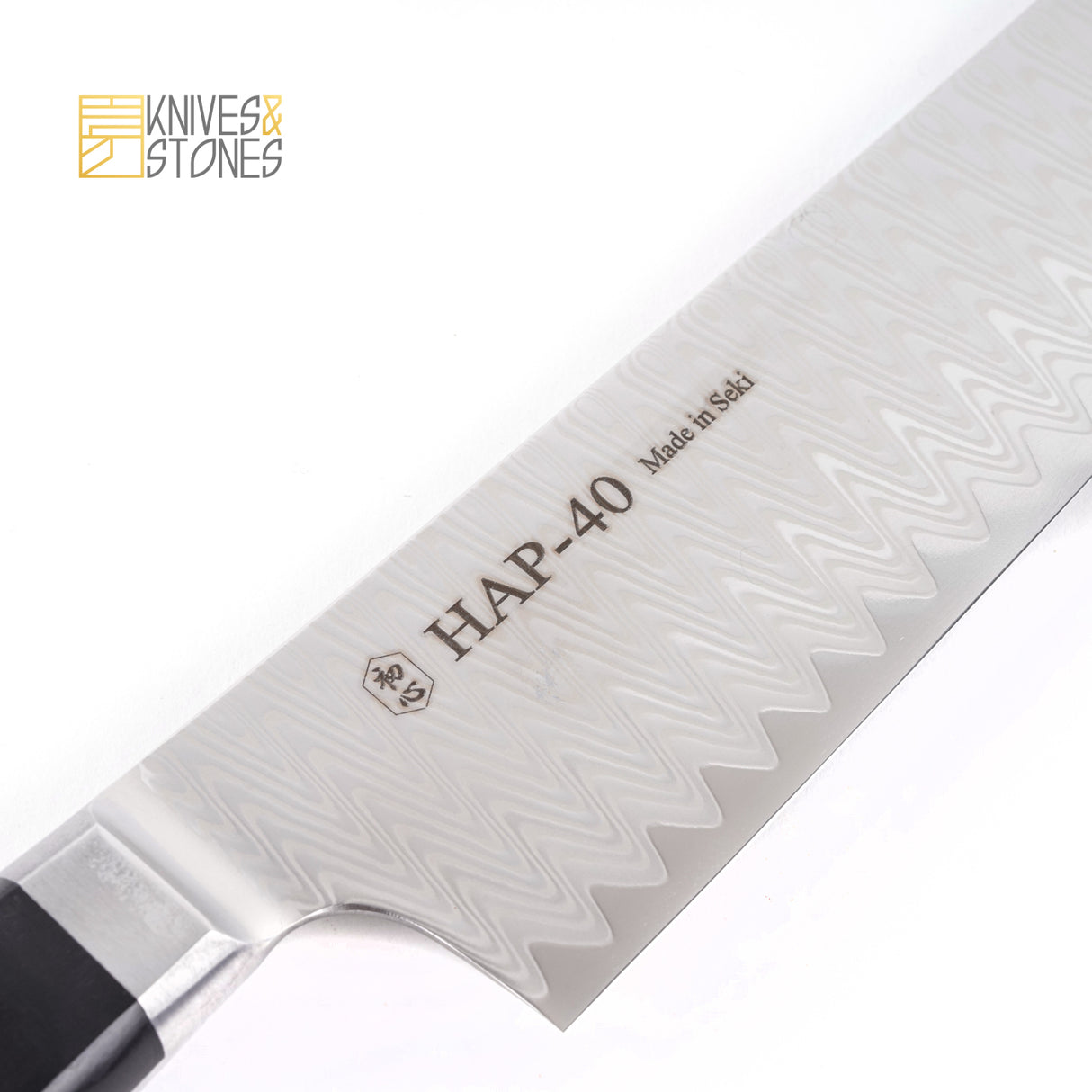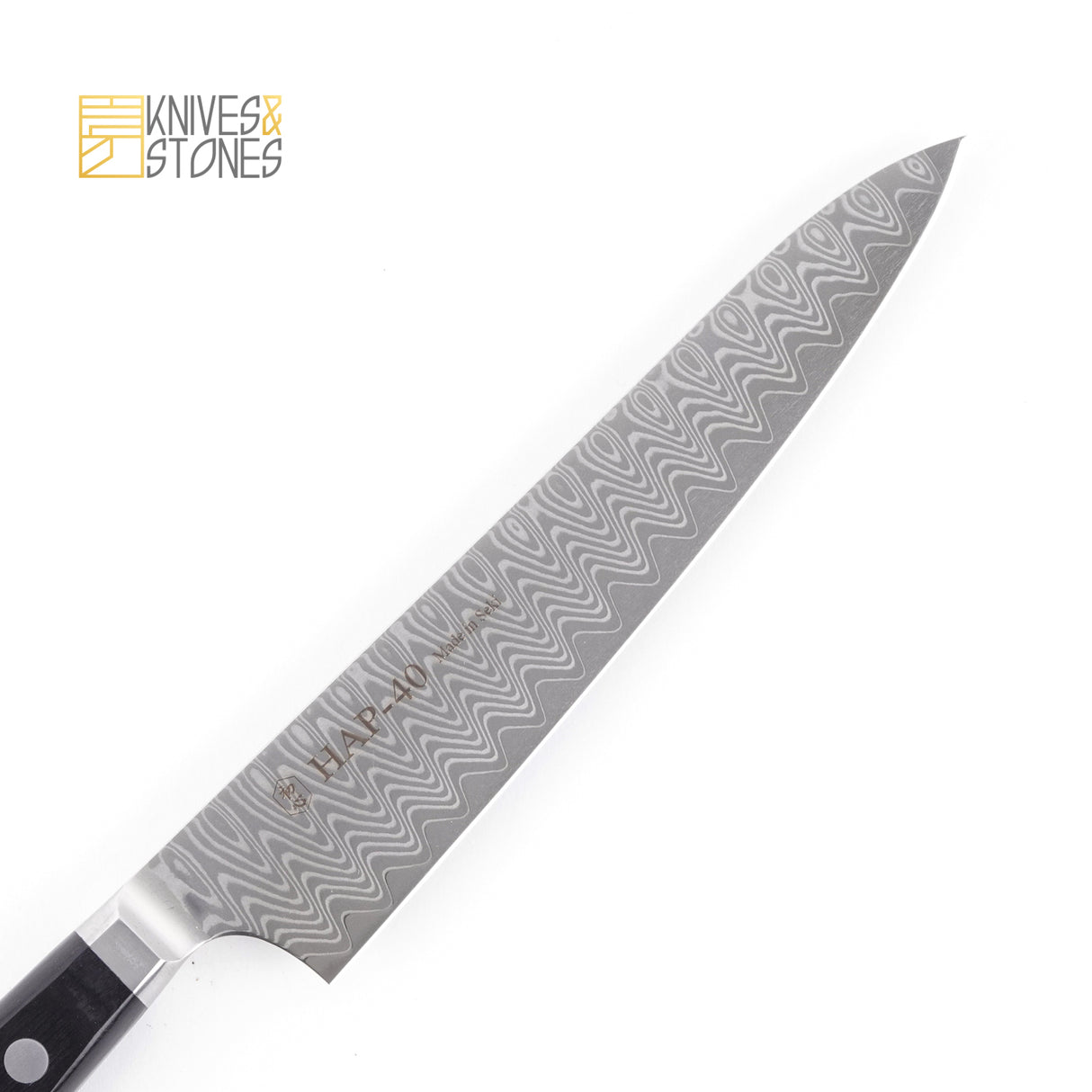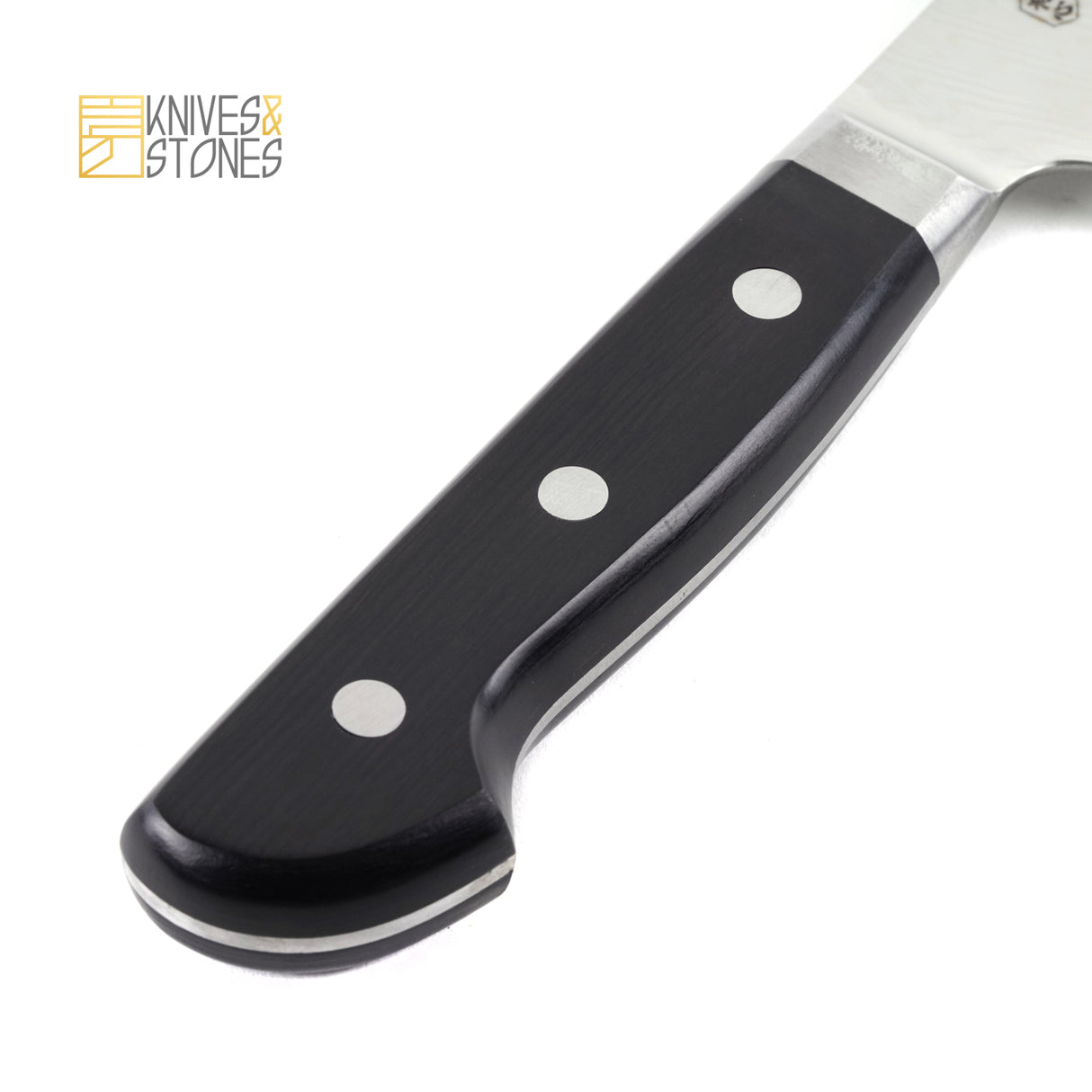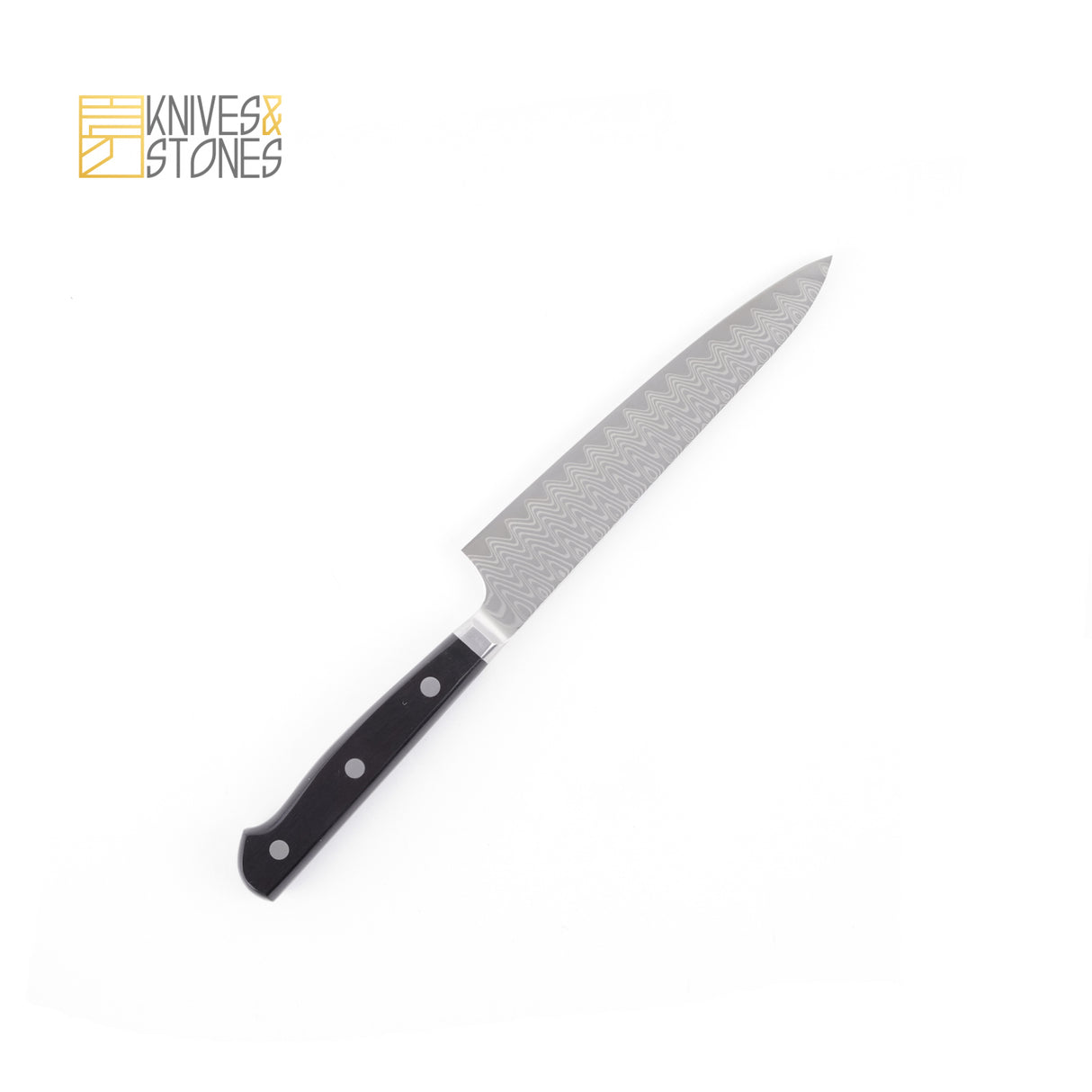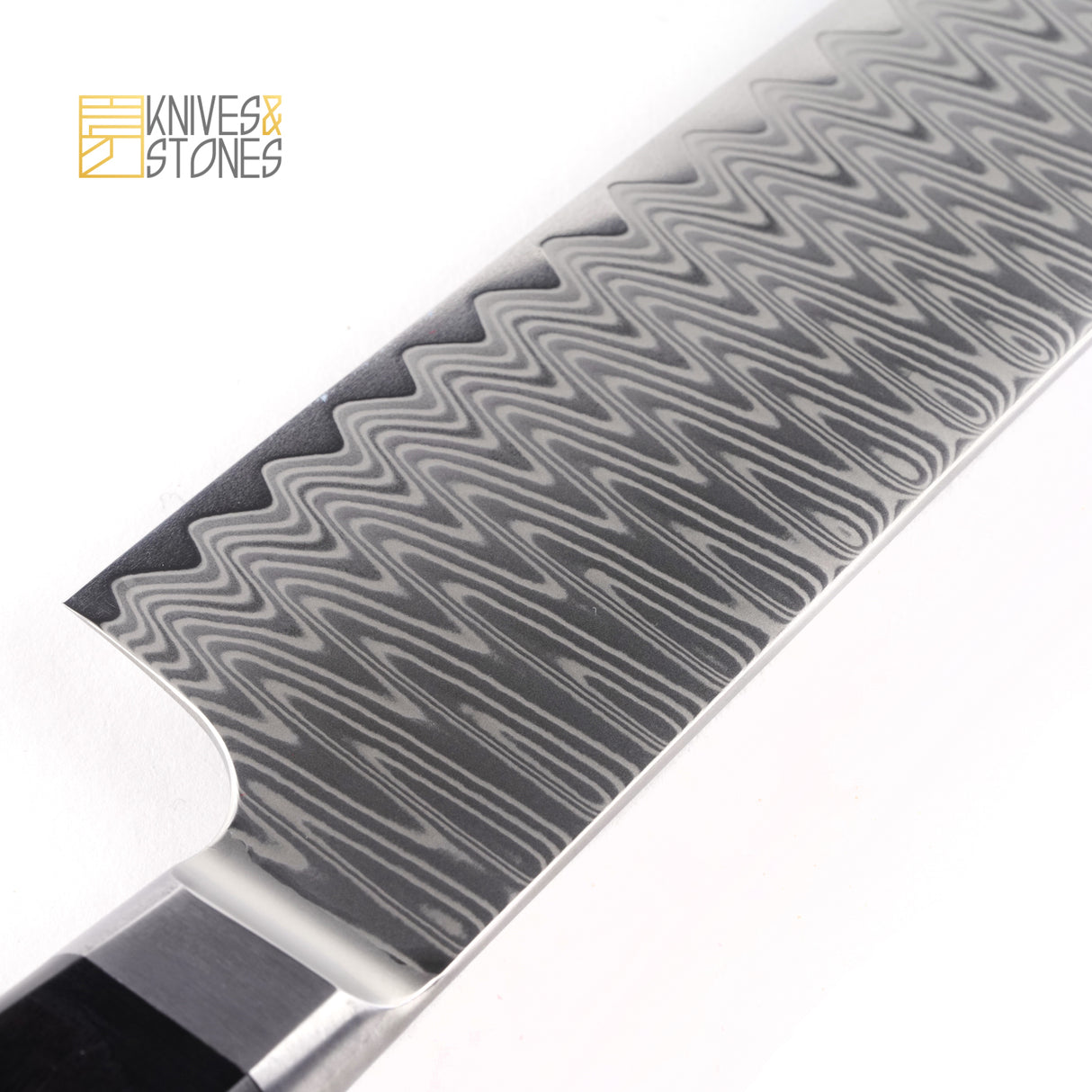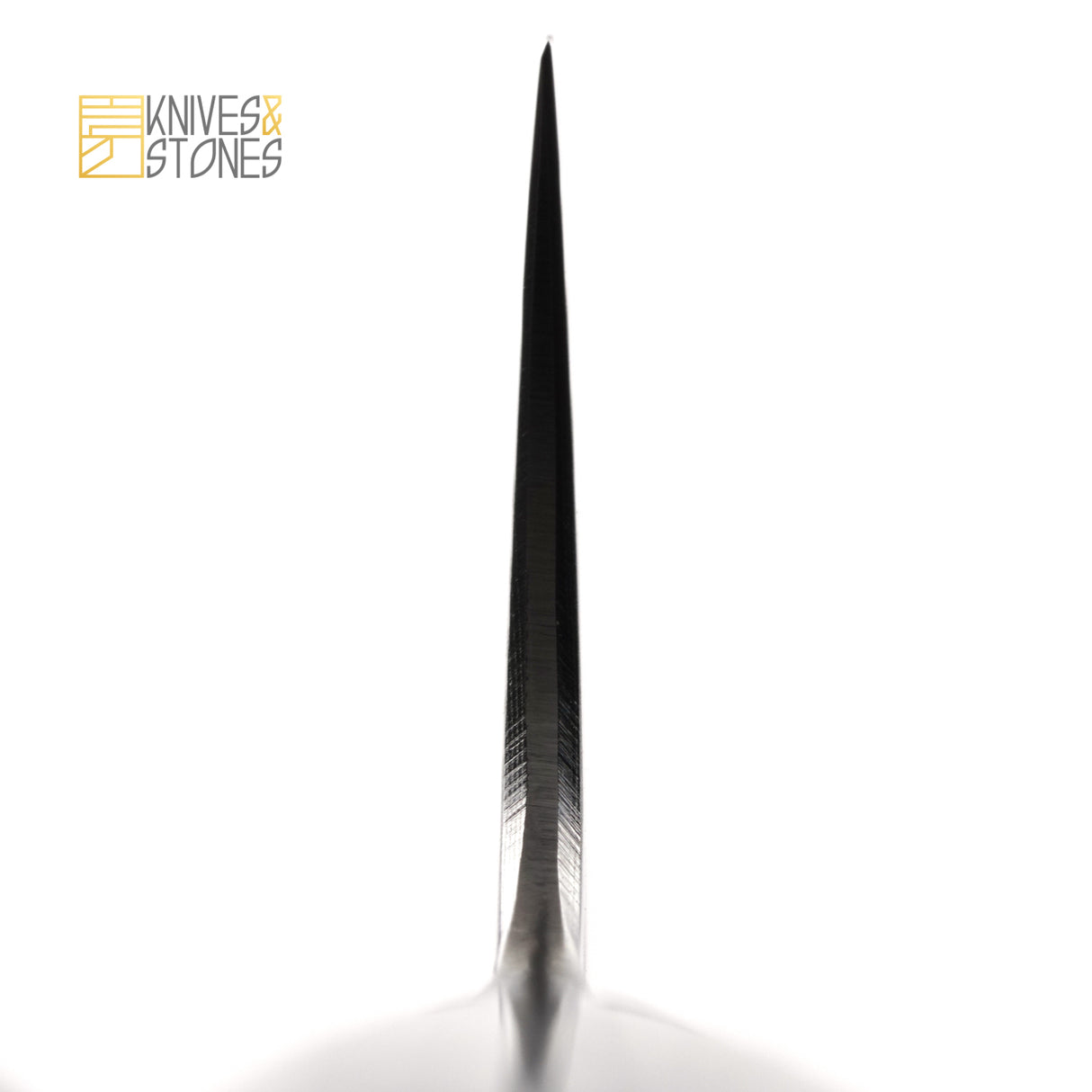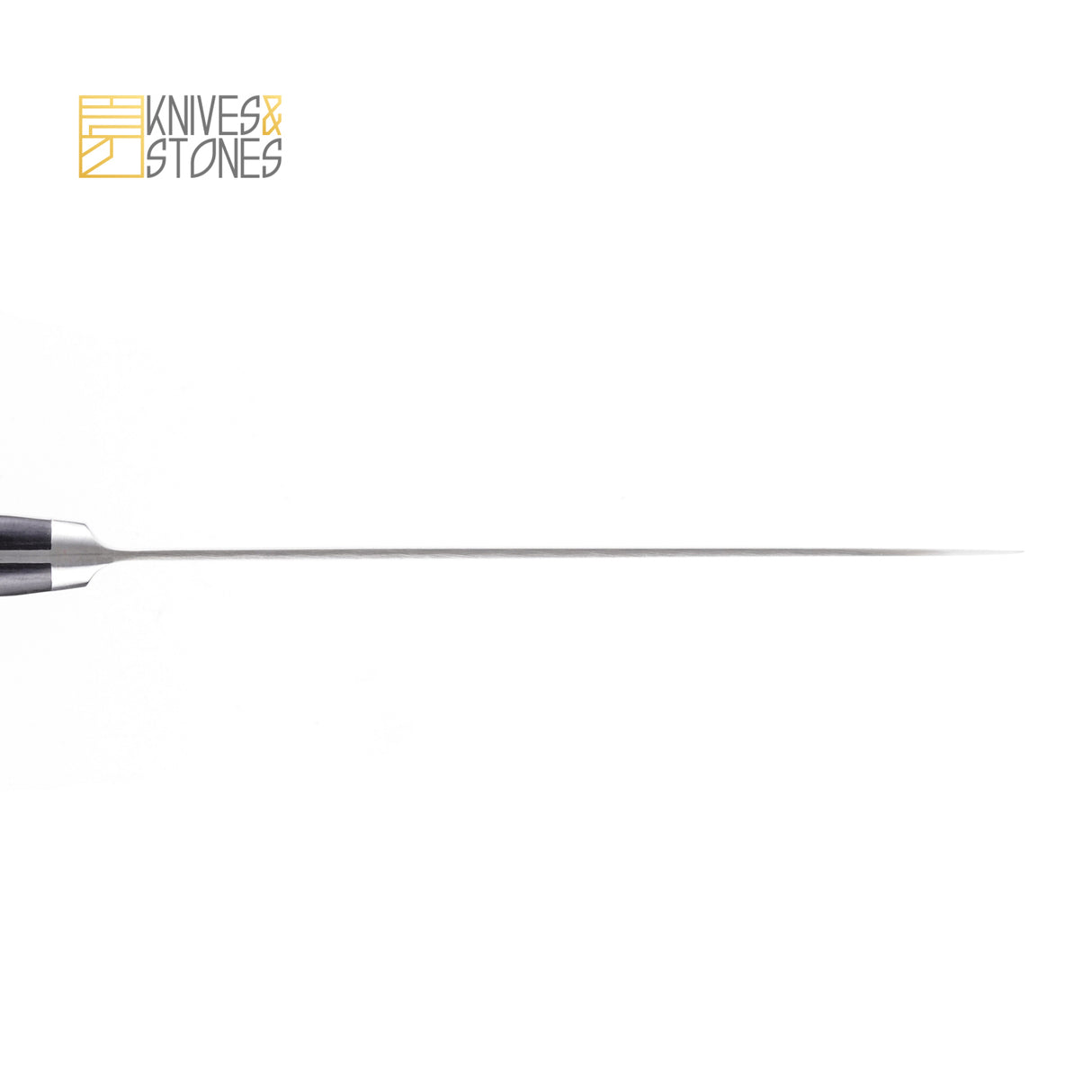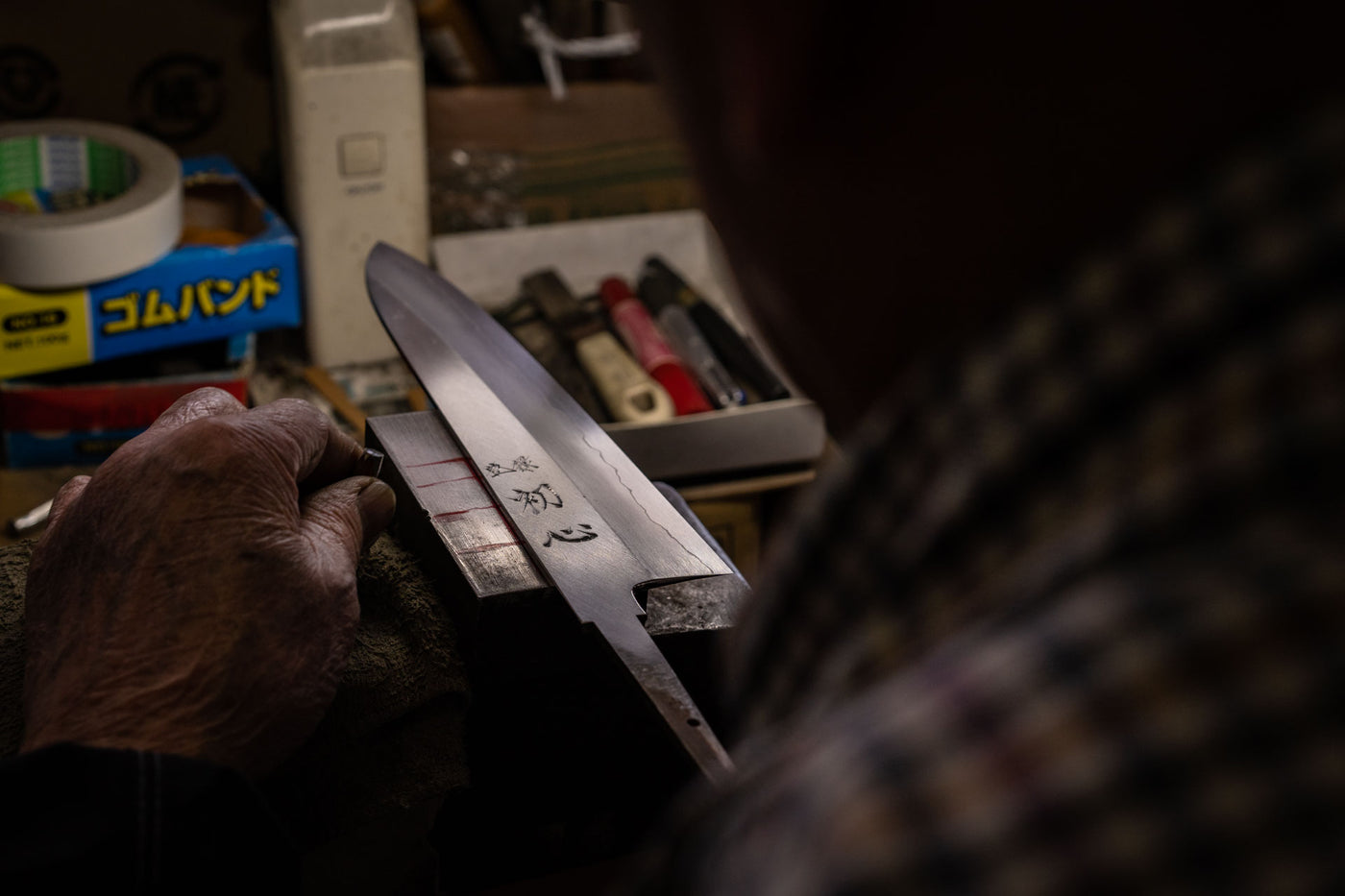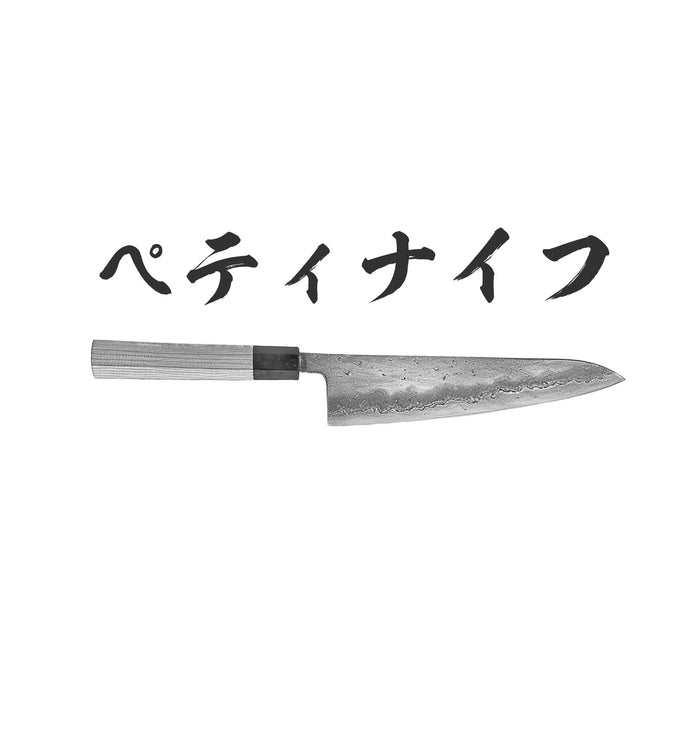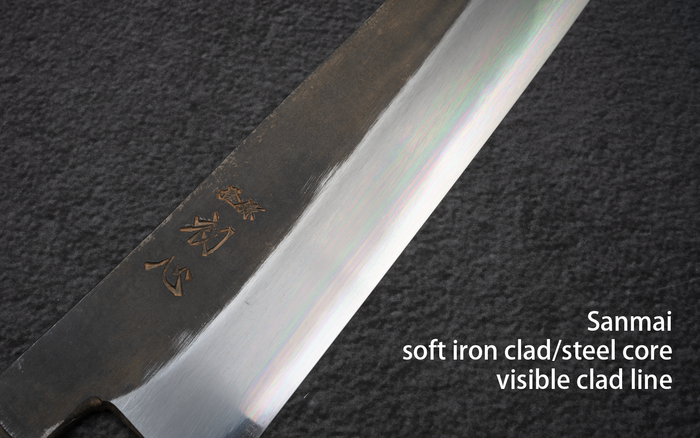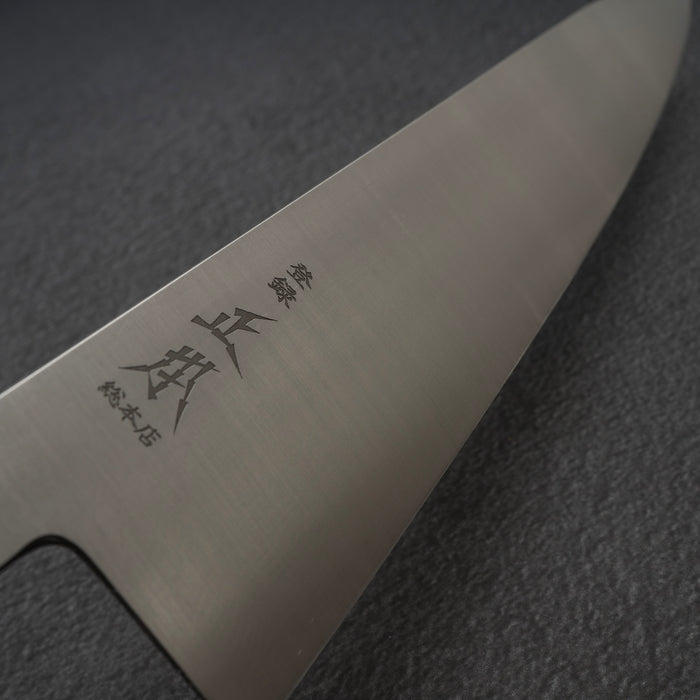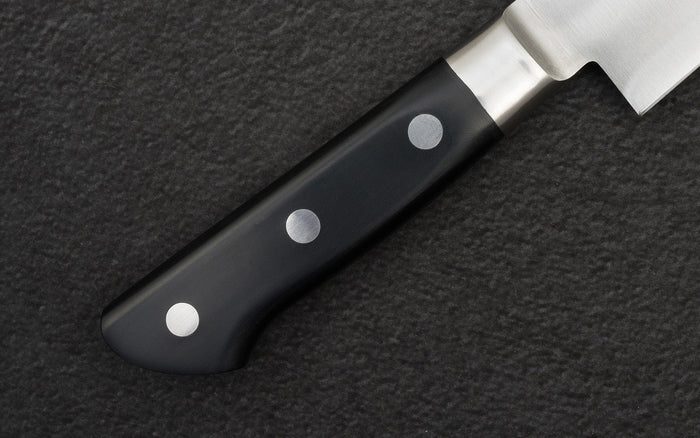Hatsukokoro | SKU:
HATS_HAPDA_PE150_PKW
Hatsukokoro Hayabusa HAP-40 Damascus Petty 150mm with Western Handle
Regular price
$269.95
Unit price
/
Unavailable
Hatsukokoro Hayabusa HAP-40 Damascus Petty 150mm with Western Handle is backordered and will ship as soon as it is back in stock.
Couldn't load pickup availability
Detailed Specifications
| Line | Hatsukokoro Hayabusa HAP40 Western Handle |
| Profile | Petty / Utility, Paring |
| Bevel Type | Double Bevel |
| Weight | 93 g | 3.3 oz |
| Edge Length | 142 mm | 5 19/32″ |
| Heel Height | 29 mm | 1 9/64″ |
| Width @ Spine | 2.0 mm | 5/64″ |
| Width @ Mid | 1.9 mm | 5/64″ |
| Width @ 1cm from Tip | 0.9 mm | 1/32″ |
| Steel | HAP-40 | Powdered | Semi-stainless |
| Blade Construction | Sanmai - Soft Iron Clad |
| Hardness (HRC) | 64 - 68 |
| Surface Finish | Migaki |
| Handle | Western Pakka Wood with Bolster |
| Region | Hyogo |
| Best for |
|

| Pros | Cons |
|
|
|
Care Instruction
- Don't cut hard things! Japanese knives are brittle so bone hacking is a NO NO!
- Wash with neutral detergent after use, and wipe dry;
- Please don't wash knife with dishwasher, it will damage the wood handle;
- Be careful not to leave the knife close to a heat source for a long time;
- It is a lot more dangerous to cut with a blunt knife than a sharp knife!
- It is best to sharpen a Japanese knife regularly on a waterstone.
- Semi-stainless steel won't rust easily but may still patina

